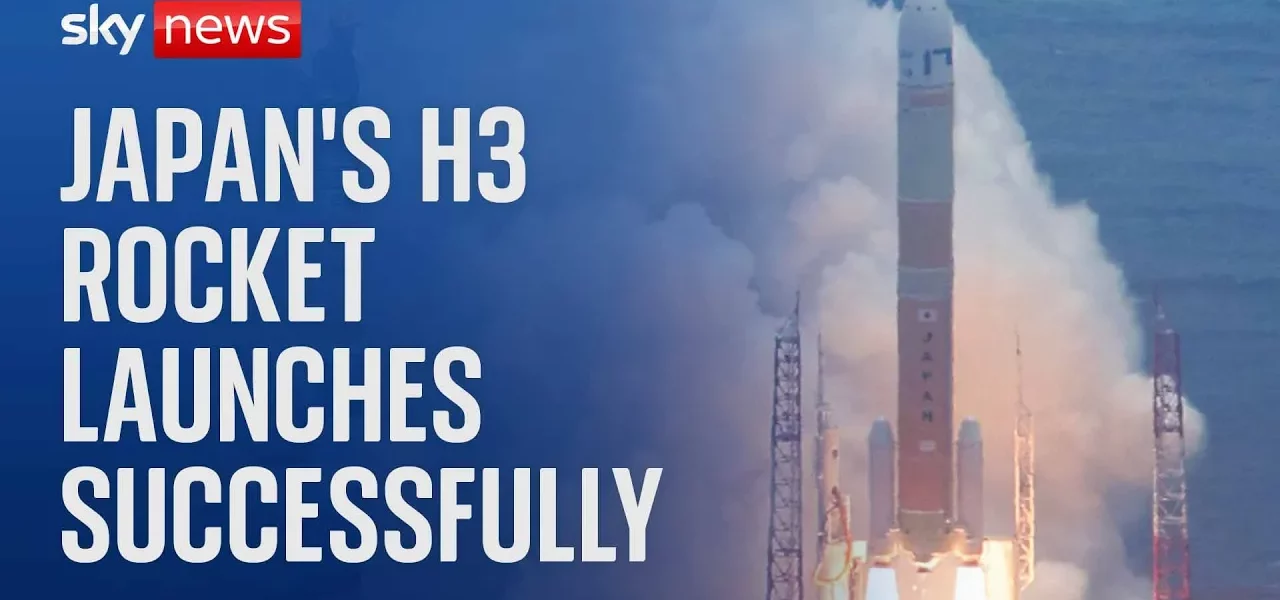Successful Launch of Eros 4: H3 Rocket No. 3 Overview

The launch of Advanced Radar Satellite No. 14, known as Eros 4, aboard H3 Rocket No. 3 marks a significant milestone in Japan’s space endeavors. This article provides a detailed account of the launch, the key contributors, and the implications for future space exploration and disaster management in Japan.
Introduction
On [Insert Date], Japan successfully launched Advanced Radar Satellite No. 14, Eros 4, via H3 Rocket No. 3, a project backed by the Ministry of Education, Culture, Sports, Science, and Technology. The launch took place at [Insert Launch Site], demonstrating Japan’s commitment to advancing its space capabilities. This article delves into the specifics of the launch, the key figures involved, and what this achievement means for Japan’s space program and its applications in disaster response and environmental monitoring.
Launch Details and Materials Distributed
Prior to the launch, it was confirmed that various materials would be distributed at the venue and made available for download by media participating in WebEX. The materials included:
- Launch Progress
- Press Conference Press Release
- Launch Sequence No. 14 Press Release
- Statement by the Minister of Education, Culture, Sports, Science and Technology
- Statement from the Cabinet Office
- Background Information on Satellite No. 14
These documents were crucial in providing context and detailed insights into the mission and its expected outcomes.
Key Speakers and Their Contributions
The press conference featured several prominent speakers who played vital roles in the launch event:
Mr. Masanori Nagai
As the Deputy Director-General of the Ministry’s Research and Development Bureau, Mr. Nagai expressed gratitude for the successful launch and highlighted the importance of the satellite in disaster management.
Mr. Atsushi Watanabe
Deputy Director-General of the Cabinet Office, Mr. Watanabe emphasized the significance of the H3 rocket, noting its contributions to Japan’s space strategy and international competitiveness.
Mr. Shinsuke Araki
From Mitsubishi Electric Corporation, Mr. Araki discussed the technological advancements achieved through the Eros 4 mission and the commitment to operational excellence in satellite data delivery.
Mr. Iwao
The Director of the Business Division at Mitsubishi Heavy Industries expressed pride in the collaborative effort leading to the successful launch and the importance of supporting global environmental issues through satellite data.
Mr. Hiroshi Yamakawa
As Chairman of Chisa, Mr. Yamakawa provided an overview of the launch results, confirming the successful deployment of Eros 4 and its capabilities in monitoring environmental changes.
Launch Results
At 12:06:42, H3 Rocket No. 3 successfully launched, and approximately 16 minutes and 34 seconds later, Eros 4 was confirmed to have separated from the rocket. The satellite is equipped with advanced synthetic aperture radar, which plays a crucial role in:
- Rapid response to natural disasters
- Early detection of geological changes
- Monitoring of forest and agricultural resources
This technology will enable Japan to maintain a continuous observation system, enhancing its capabilities in responding to environmental challenges.
Implications for Japan’s Space Program
The successful launch of Eros 4 signifies a pivotal moment for Japan’s space ambitions, particularly in maintaining independence in space transportation and enhancing international competitiveness. The commitment to future operational excellence includes:
- Ongoing collaboration with various sectors, including government and private organizations.
- Development of new technologies and enhancements in launch systems.
- Expansion of capabilities to meet both domestic and international launch demands.
Conclusion
The launch of Advanced Radar Satellite No. 14, Eros 4, represents a significant achievement for Japan’s space program and its commitment to leveraging space technology for disaster management and environmental monitoring. As the nation continues to advance its space capabilities, the collaborative efforts among government agencies and private enterprises will be instrumental in shaping the future of Japan’s space exploration. We encourage readers to stay informed about upcoming launches and technological advancements by visiting our related articles on Japan’s space initiatives.
“`




